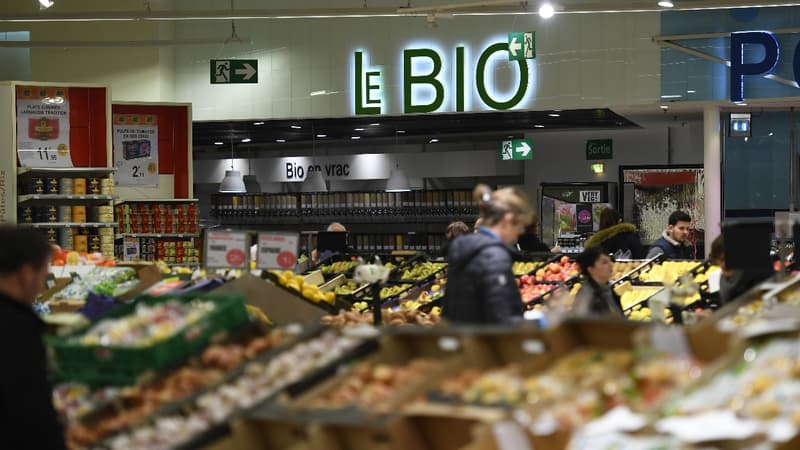For consumers of organic fruits and vegetables, it is more profitable to go to an organic brand store than to a supermarket. According to the study by the specialized title Plan Bio, these products are displayed at prices on average 10% lower than those charged by large distributors. Tricolor salads, all varieties together, are sold, for example, for 1.48 euros on average in organic stores, compared to 2.03 euros in large retailers.
A difference that can even reach 30% depending on the products and seasonality. Furthermore, in high season, the price of the same fruit can be divided by two or even three. This is especially the case for tomatoes, whose price increases by 31% between that of organic stores and that of supermarkets.
According to monthly data from FranceAgrimer Market News Network, the most significant difference refers to white grapes of French origin, which are sold, on average, for 5.97 euros in organic stores compared to 8.33 euros in supermarkets, a difference of 28%.
Exceptions
For the most popular fruits and vegetables, mass distribution continues to work well. Thus, washed organic carrots from France have an average price of 2.34 euros per kilo in supermarkets, while organic brands offer them at 2.77 euros per kilo. Same observation for apples of two colors whose price differs by 11% between mass distribution and organic stores.
it’s on The strawberries that stand out the most in supermarketsoffering them on average at 16.57 euros per kilo compared to 20.47 euros per kilo for organic brands.
Divergent sales strategies
These disparities are partly explained by different market positions. For supermarkets, the price war occurs more in mass consumption products than in fresh and organic products. Thus, to compensate for the low margins obtained by certain departments, distributors are more lenient with the prices of organic shelves.
Unlike supermarkets, organic stores depend more on fruits and vegetables, which represent a quarter of their turnover. Therefore, these brands are more willing to charge attractive prices for these products to attract consumers.
According to Plan Bio, the packaging of organic fruits and vegetables present on supermarket shelves contributes to widening this price difference. Encouraged to protect organic products to avoid any contamination and facilitate their traceability, distributors almost systematically package these products. An operation that would entail an additional cost reflected in the sale price.
The few supermarkets that choose bulk for their organic fruits and vegetables stand out from their competitors. Thus, Leclerc Cleunay in Rennes, which offers both packaged organic products and organic products in bulk, presents drastically different prices. For example, this distributor sells organic zucchini in bulk at 1.45 euros per kilo, compared to 3.32 euros for packaged ones.
Source: BFM TV


